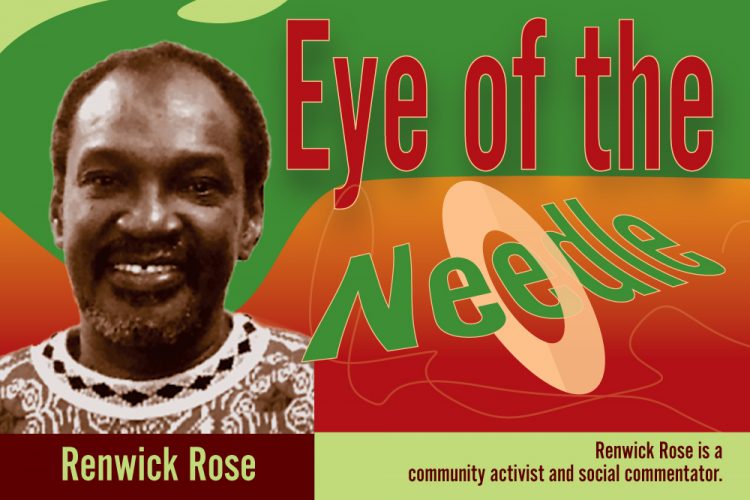Calder Williams: A champion of working people

Although I had not met him in person for some time now, it saddened me to hear of the passing of Bro. Calder Williams, for more than four decades the most consistent advocate of the rights and interests of the working people of North Leeward.
In the tributes, a lot of mention has been made of his accession to the office of Leader of the Opposition and Parliamentary representative during the turbulent 1979/84 period, beginning with the quite unnecessary and panic-driven State of Emergency 1979/80 right up to the defeat of the Labour Party in the 1984 elections. But, if due is to be given, Calder’s contribution went much beyond that; for over all those years he demonstrated his commitment to the working people of his beloved North Leeward in particular, and those of his country in general.
My first acquaintance with him came in the heady days of the mid-seventies when he headed the New Rescuers Movement (NRM) based in Chateaubelair, sharing with other organizations like YULIMO, to which I belonged, a vision of a new society. The struggles of the teachers and nurses of the day, not just for respect and better working conditions for themselves, but also for better education and health for the working people, were particularly important for the people of North Leeward. Calder and the NRM did not back away from the challenges.
Over the years, in spite of the many vicissitudes associated with Vincentian politics, whatever his political status, he could be counted upon when the chips were down, always on the side of the working people. I refer here not just to the traditional party politics but especially to the many struggles of our working people.
At a time when very few could see beyond traditional borders of party affiliation or organizational objectives, out of North Leeward came boldly, the Workers and Peasants Union (WAPU) of Calder and company, linking the interests of the exploited workers on the Richmond estate with those of the land-starved small farmers (peasants) of the area. It was a vital connection, perhaps not appreciated to this day, the foundation for any social transformation to occur.
From the mid-seventies there was no shortage of issues, the teachers and nurses, the plight of estate workers, the battles for a democratic independence constitution, the ‘Dread’ Bills of 1981, the Representation of the People Act, and after the so-called “Wild Bill” and the broad-based peoples’ rejection of a tired Mitchell administration in 2000, Calder could be counted to be on the right side.
His flirtation with traditional politics did not turn out to be positive in the long run. It was significant that his principled defence of the working people of North Leeward forced the late Sir James Mitchell to back off from imposing his own candidate for North Leeward in 1979 when the constituents insisted that Calder was their choice. Incidentally, the same thing happened with Jerry Scott in South Leeward five years later.
Unfortunately, this young man in his mid-twenties, having achieved an historic victory over Labour’s John Thompson, found himself catapulted into a by-default accession to the leadership of the Opposition after Mitchell’s gamble to contest the South-Central Windward seat came up crops. Mitchell’s bid was ended by the crucial votes of the UPM’ s Simeon Greene which not only cost him the bid but also ended the political career of the veteran E.T. Joshua.
At the same time, Mitchell’s other gamble, to bring home Cosmos Cozier from New York to contest the Grenadines seat, which he did successfully, also backfired when Cozier, obviously disappointed at NDP’s defeat, decided to give up the newly won seat and return to North America without even being sworn in as an elected Parliamentarian.
Calder was now the only duly elected member on the opposition side and therefore obviously qualified as Leader of the Opposition. But following Mitchell’s return to Parliament when he won the by-election to recapture the Grenadines seat, contradictions developed between not only Mitchell and the inexperienced Calder, but also among some of his erstwhile lieutenants who encouraged Calder not to relinquish the leadership of the Opposition in Parliament.
It is easy in retrospect for us to criticize and even condemn Calder for the position he took then, not without instigation. In retrospect we have to ask ourselves, the “holier-than-thou” crowd, how many of us attempted to reach out to a colleague, faced with such a monumental decision and surrounded by persons, many of whom have proven to be self-seekers? Perhaps, support, or even understanding from the rest of us in the progressive movement could have resulted in a different outcome and a strengthened Calder. Our “righteousness” did not permit us to see otherwise.
In retrospect we must remember Calder for his positives. It is not by chance that when he turned to full-time farming, he became part of the Fair-Trade banana group in his area, sharing his wisdom and commitment in seeking new pathways to progress for small farmers in the Chateaubelair region.
That is how he must be remembered, giving his all towards the betterment of his beloved folk of “Chato” and North Leeward.
NUFF RESPECT MY BROTHER!
Renwick Rose is a community activist and social commentator.











